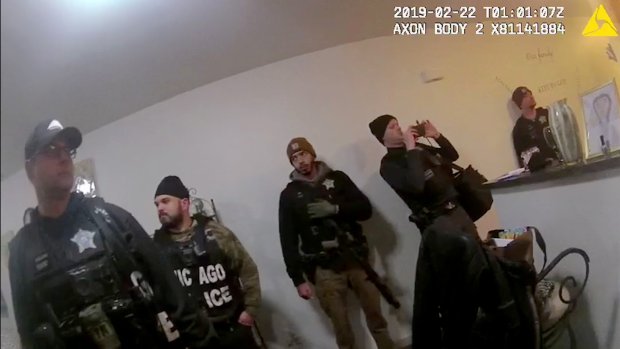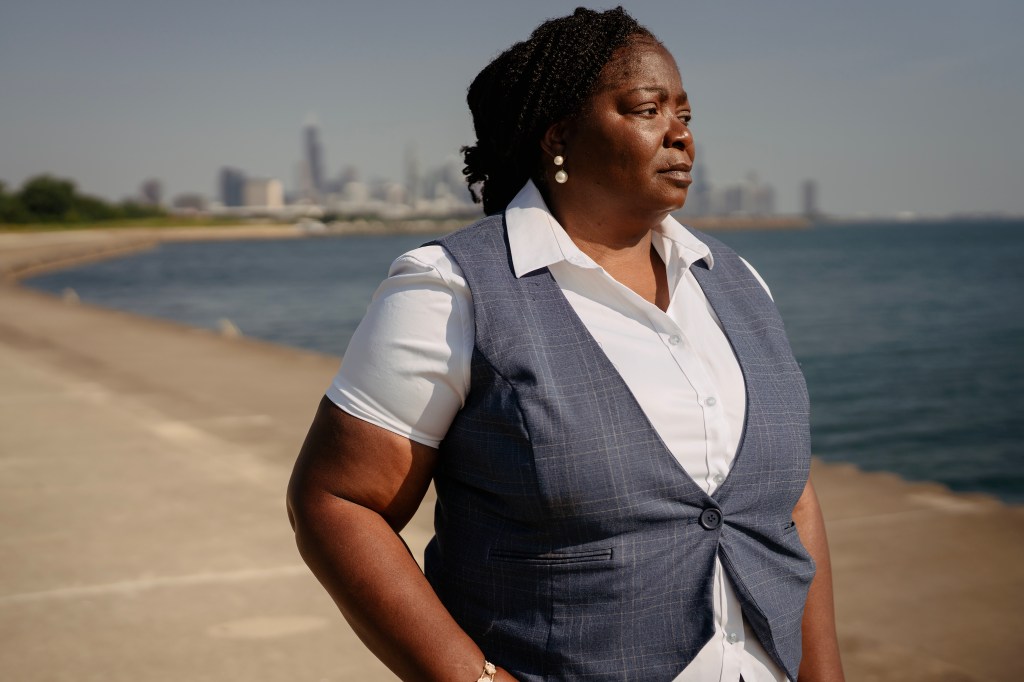In Illinois, as in our nation these days, compromise isn’t really a common thing.
Given our infamous 793-day budget impasse, partisan gerrymandering and Chicago’s tongue-in-cheek political motto of “vote early, vote often,” it was with irony that Texas legislators recently fled here, of all places, to escape their own partisan rancor.
So the recent news that Chicago’s Anjanette Young Ordinance — a years-in-the-making overhaul to the Chicago Police Department’s search warrant policy — could at last get over the finish line in September because of a (gasp) compromise sends some welcome tremors through the current political system.
Young’s horrific experience is among those in the ever-increasing hall of fame of Chicago police mistreatment of Black and brown residents. In February 2019, the Black social worker was handcuffed naked in her home as police raided the wrong apartment, acting on a tip from a confidential informant. She repeatedly told police they were in the wrong place. They didn’t listen, traumatizing and victimizing her in the process. She sued the city, settled a lawsuit for nearly $3 million and has been fighting to abolish no-knock warrants, which allow officers to forcibly enter homes without announcing themselves.
In recent months, this effort has evolved into an ordinance that would, for now, require police to provide the resident of a home at least 30 seconds to answer the door when being served with a search warrant.
Last May, I graduated from Loyola University Chicago’s School of Law. After 15 years in journalism, I’d made the decision to go back to school to expand my skill set based on a number of reasons, among them, learning to speak truth to power in a different way. It was a more difficult process than I’d like to admit. But one of the numerous benefits, beyond an additional degree, was that the experience profoundly expanded my views on tolerance, civil rights and racial equity, in particular, looking at how race, gender and the patriarchy intersect to endanger the lives of Black women. This uniquely American problem is a legal and social one, I began to see more clearly.
“There are certain tropes and ways of interpreting the Black female body that are completely embedded in our society,” noted Teri McMurtry-Chubb, director of critical race and gender studies and a law professor at the University of Illinois Chicago. These include typecasting Black women as jezebels, sapphires and mammies; these depictions, combined with the law enforcement they may be exposed to, increase their vulnerability under the law. For example, policing in Black and white neighborhoods in the same cities has been found to treat Black residents and white residents as respectively “bad” and “good,” transcending the oft-used narrative of bad-apple cops.
As someone who became used to speaking in sound bites, I was sweating out a 20-minute presentation on Black feminism and the law one spring when I noticed Young listening to the academics and students presenting that day. She didn’t seek the limelight — she could have — but instead, she sat toward the back of Loyola’s ceremonial courtroom, quietly nodding and offering support for presentations she found provoking.
Young’s ordinance is sitting in the City Council’s Police and Fire Committee after Ald. Maria Hadden, 49th, introduced it in July. If it passes there, it heads to the full City Council.
While Young still supports a no-knock ban in the future, she told the Tribune she has become comfortable with this iteration of the ordinance after looking at Chicago police data showing no-knock warrants have been “barely used.”
 Body camera footage shows a team of Chicago police officers conducting a raid on social worker Anjanette Young’s home on Feb. 21, 2019. (Chicago Police Department)
Body camera footage shows a team of Chicago police officers conducting a raid on social worker Anjanette Young’s home on Feb. 21, 2019. (Chicago Police Department)
“Now, ultimately, would I love to see no-knock warrants completely banned in the city, the state and across the country? Absolutely,” Young said, per a Tribune report. “But I feel hopeful in the sense that if this ordinance passed, we have a tangible piece of legislation that allows for accountability.”
Hadden told the Tribune that she and Young agreed it was not worth jeopardizing the success of an ordinance that had been subject to years of false starts and stops. “We want to get something passed that’s actually addressing the problematic behavior, and if that means some compromises, we’re willing to do it,” Hadden said. “We can’t let the perfect be the enemy of the good.”
Young’s refusal to fade into the background, to keep pushing, should be applauded and learned from. Even more than that, we should celebrate her resilience and practicality.
As a city, as a society, we’ve taken too much from her. Now, we need not only to honor her but also what she’s given back.
Kerry Lester Kasper is a Chicago-based writer.
Submit a letter, of no more than 400 words, to the editor here or email letters@chicagotribune.com.
